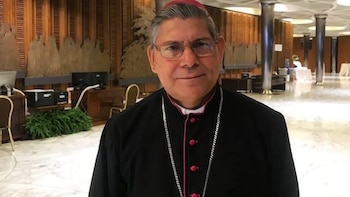
(ATR) The future of anti-doping efforts in cycling could be at a crossroads.
The Cycling Anti-Doping Foundation (CADF), the current organization in charge of fighting doping in the sport, is working to keep its place.
The CADF has released an open letter to the global cycling community in response to a decision by the Union Cycliste Internationale (UCI) to explore the possibility of working with the International Testing Agency (ITA) on anti-doping.
In the letter, the CADF detailed its track record in the fight against doping, saying that "since its foundation in 2008, and vitally its independence in 2013, the CADF has been recognized as one of world’s most comprehensive, innovative, efficient and credible anti-doping organizations".
The CADF letter also stated that "it is now up to the cycling community to assess whether the risk of change is for the good of the sport" and called for the community "to have its voice heard about the future of anti-doping in its sport".
"Our mission is to serve the clean athletes. It is the only thing that matters," a CADF spokesman told Around the Rings. "And we firmly believe that the clean athletes are best served by the CADF, which has 11 years of experience working exclusively in our sport — four with a strong intelligence and investigations department that most other anti-doping agencies do not even have."
The UCI, while acknowledging the efforts of the CADF, says it wants to explore the possibility of teaming up with the ITA in a more global approach to combat doping, which it says knows no boundaries between either sports or countries.
"We are keen to consider whether a pooling of expertise and resources could lead to a more efficient anti-doping policy and enhanced protection for clean athletes," a UCI Spokesman tells ATR.
The ITA, established by the Olympic Movement in 2018 with the support of the World Anti-Doping Agency (WADA), is currently in charge of anti-doping programs for more than 40 organizations, including a number of International Federations and organizers of major events.
Discussions between the UCI and ITA are ongoing. The UCI says it will make a final decision in February of next year.
The UCI spokesman says that regardless the outcome of the discussions, the UCI "will make sure the CADF’s know-how and resources are preserved" and that the CADF will remain in charge of anti-doping operations for 2020.
The CADF, however, believes that it is the organization to lead the sport’s anti-doping efforts well beyond 2020.
"We are much better equipped to do the job, in the most cost-efficient way, than any other ADO. Indeed, it would take any other organization many years to reach our current level of expertise, which is the result of our competent, dedicated and experienced staff members," says the CADF spokesman.
"We also enjoy excellent cooperation with many ADOs, WADA, law enforcement authorities as well as our cycling stakeholders, including those that make up our unique governance structure: The International Association of Professional Cycling Teams (AIGCP), The International Association of Race Organisers (AIOCC) and the Cyclistes Professionnels Associés (CPA). Together these stakeholders, which fully support the work of the CADF, contribute more financially to the fight against doping in our sport than even the UCI."
For its part, the UCI says that the funding injected by cycling’s stakeholders, in particular the teams, will continue to benefit the sport should the federation opt to go with the ITA.
Homepage photo: CADF
Written by Gerard Farek
For general comments or questions,click here.
Your best source of news about the Olympics is AroundTheRings.com, for subscribers only.
Últimas Noticias
Brigitte Henriques: “The important thing is that the women who are elected should be chosen for their ability, not because we are looking for modernization in terms of gender”

The Hula Report: Winds of Change for ANOC in Crete

Gilles Gilbert Gresenguet, presidential candidate for AFCNO: “We must take advantage of Paris 2024 to bring the Olympic Games back to French”

USOPC announces 613-member 2020 U.S. Olympic Team

Roger Federer pulls out of Tokyo Olympics: "I am greatly disappointed"




